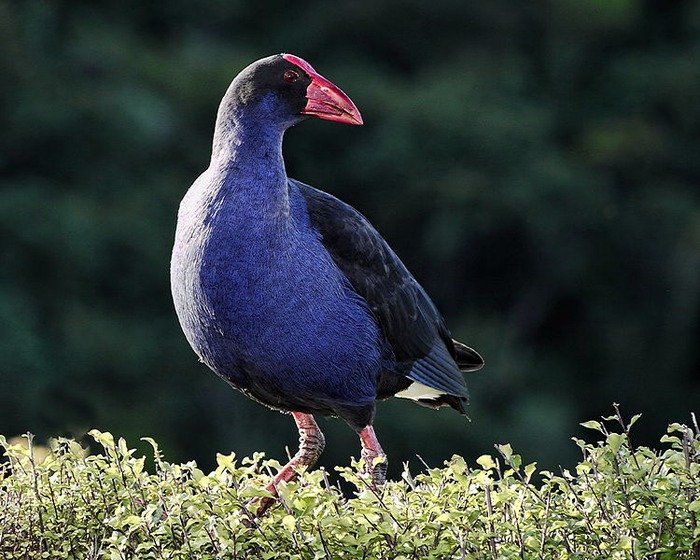Credit: Sid Mosdell, Wikipedia, Creative Commons
HAMILTON, Ontario, Dec. 2 (UPI) -- A New Zealand bird displaying its status in its group with a head "badge" gives insight into social conventions of all creatures, even humans, researchers say.
The size of the "badge," a fleshy red wedge extending from the beak and over the forehead of the pukeko, is an accurate indicator of the bird's status and apparently grows and shrinks in keeping with the bird's standing within its social group, they said.
"A lot of animals signal dominance or fighting ability to one another and some of them use these types of conventions," Cody Dey of Canada's McMaster University said. "It's like a karate belt color. There's no reason that a fighter wearing a black karate belt should be ranked any higher than a white belt, but that's the convention, and everybody knows it and abides by it."
The research opens a window into the sophisticated social order of birds, and has implications for other species, including humans, doctoral candidate Dey said.
"I think people have this perception that humans have super-complex social lives and animals don't. That's absolutely not true. The social lives of many species of animals are very rich and very complex," Dey said. "We have these types of signals of dominance. We don't have red shields on our heads, but things like bicep size are known to be a signal of dominance in humans."
The pukeko's red badges stand out distinctly against the birds' dark feathers and serve no physical purpose, suggesting their function must be social, the researchers said.
In New Zealand the researchers took high-ranking birds and painted over the edges of their badges with black paint to make the badges appear smaller.
Those birds experienced much more aggression from other members of their groups, and soon their badges had shrunk to reflect their newly diminished status, the researchers found.















